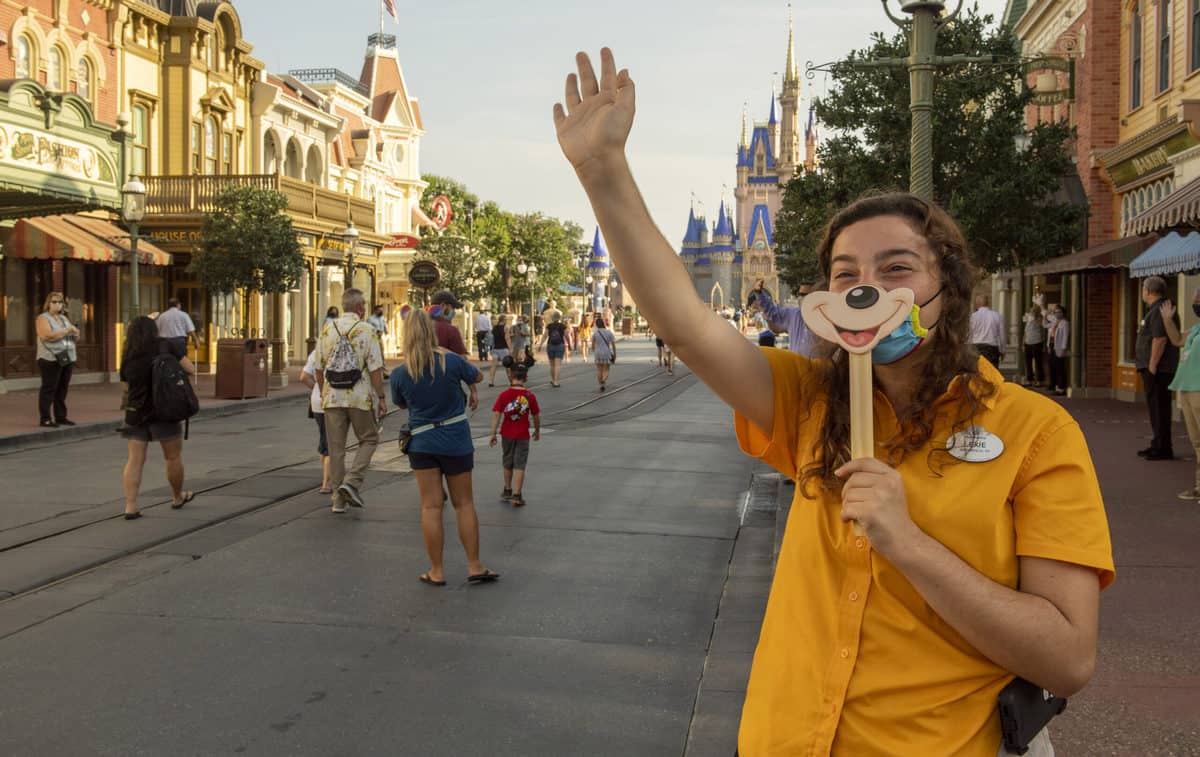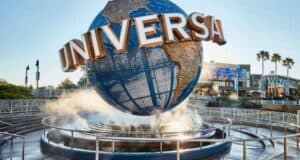
Fox’s iconic television show, The Simpsons, has gained a lot of attention in recent years for supposedly predicting future events in older episodes, from the election of President Donald Trump to Disney’s acquisition of 21st Century Fox. But it is not the only show to have this future-telling power.
Turns out, a South Park episode created in 2001 predicted Disney Parks’ Chapek-Era capacity restrictions, and while it does not mention a global pandemic, it predicts the closing and financial success that can come from closing a Theme Park and slowly reopening to the public with restricted access. And, arguably, also predicts the Guests’ frustrations about returning crowds.
Titled “Cartmanland,” the Season 5 episode begins with Eric Cartman surprisingly inheriting $1 million from his deceased grandmother. To the dismay of his friends Stan and Kyle, Cartman uses the money to purchase the local Amusement Park called “North Park Funland.” The Park’s owner confesses that it is a “financial flop” due to attendance, but Cartman clarifies, “I’m not buying it for people to come… I’m buying it to keep people out.”
“Don’t you see,” he says. “Forever, it has been my dream to have my very own Theme Park so that I can be alone in it all day, every day.” Cartman then goes on a rant a la “How the Grinch Stole Christmas” about how crowds and lines ruin the Theme Park experience.
Here’s the clip from the episode:
So Cartman buys North Park Funland and kicks everybody out. Renamed “Cartmanland,” showrunners Trey Parker and Matt Stone make clear references to Disneyland, featuring a knock-off combination of Haunted Mansion and Phantom Manor, spinning coffee mugs instead of tea cups, a mine train coaster, and a log-flume ride called “The Yeti” that looks like the lovechild of Splash Mountain and The Matterhorn Bobsleds. They even mention “Fast-Pass” earlier in the episode.
Cartman is so happy that he even takes out a television ad for the Grand Opening of the all-new Cartmanland, telling all viewers, “You can’t come!”
But shortly after the commercial airs, Cartman realizes he needs to make some changes. He catches Stan and Kyle trying to sneak into his beloved Park, so he needs to hire security. His rides start to break down, so he needs to hire maintenance. And in order to pay for his new employees, Cartman has to accept that he needs to let a few people in each day. Starting with two people, he is forced to raise capacity throughout the episode, but only so many as necessary to pay for his expenses (which naturally rise with the more people he has to let in).
Disney Parks’ “You Can’t Come Technique” Predicted in 2001
Related: Video: A Seemingly Frustrated Bob Chapek Doubles Down on Theme Park Reservations
Cut to a rip-off of a CNBC business news segment where the anchors tout Cartman as a “financial genius” who accidentally transformed his Park–which received less than 100 visitors a day before he bought it–into a thriving success with thousands of daily Guests desperate to visit thanks to his “you can’t come” technique. “For the first several days,” they say, “the young businessman saturated the market with claims that nobody could get into his Park. It made the public crazy. So, then, weeks later, when he opened the doors, they were lining up around the block.”
Aside from the lack of a pandemic and a literal chubby selfish 8-year-old hogging the Park all to himself, why does this trickle effect sound familiar?
The Covid-justified lockdowns made everybody frustrated as they were constantly told, “You can’t come,” to a lot of places, but especially to Disney Parks. It would take months, but The Walt Disney Company, led by now-ousted CEO Bob Chapek, would finally begin reopening to Guests via extreme capacity restrictions enforced with the help of the Theme Park Reservation System. Ticket prices were raised, Annual Pass sales were suspended indefinitely, and Theme Park capacity was ultra-optimized for profit. Then and still today, the limiting systems drive people crazy, but the demand only grows higher. Theme Park Reservations for Disneyland and Magic Kingdom are often completely booked, virtual queues for the latest attractions are full within seconds of opening, and limited Annual Pass sales sell out within days or even hours. People’s extra-aggravated post-lockdown insistence on going places in recent years has been coined “revenge travel,” and thanks in part to that sentiment, Disney Parks have been able to deliver record profits.
Related: Disney CEO Bob Iger Concedes “Aggressive” Pricing Strategy Hindered Accessibility
Through Eric Cartman, Parker and Stone also predicted the overall sentiment of the Disney Park regular, as well as the general Disneyland and Disney World Guest sentiment regarding crowds. Like all of the Guests who were unhindered by the idea of catching Covid-19, Cartman experiences the bliss of an empty Park with easy access to all of his favorite rides. But over time, the justifications for keeping the Park empty began to become subdued by the need to let more people in. And despite the Park remaining under restricted access, the dreaded crowds have returned. Like many Disney fans today, Cartman’s hatred of the fact that he now has to share his happy place with so many people blinds him from the surplus of happiness he’s created and the financial success he has achieved. The show ends with Cartman abandoning the Park and returning it to its former owner, but Disney fans have yet to let the crowds and lines truly convince them to abandon the Parks just yet.
But this South Park episode proves that it does not matter how they look to justify it. Be it the fulfillment of a child’s dream or a global pandemic, there is an element of the human psyche that outright refuses to accept being told, “You can’t come here.” Theme Park operators like Disney have discovered that the more they tell Guests that, the more those Guests will do to defy the restrictions–even pay more and more money.
Since retaking the helm as CEO, Bog Iger has confirmed that while some restrictions have been lifted, capacity limits, such as Theme Park Reservations, will remain in place indefinitely.






